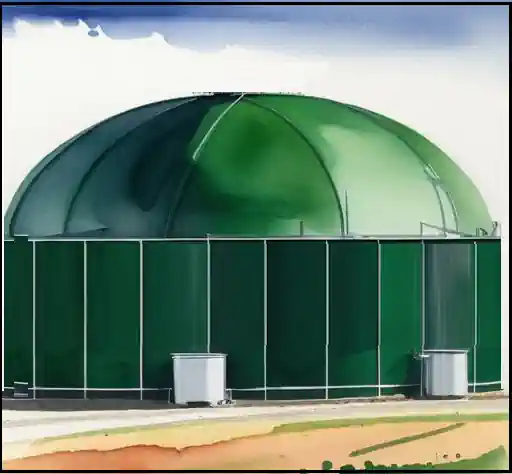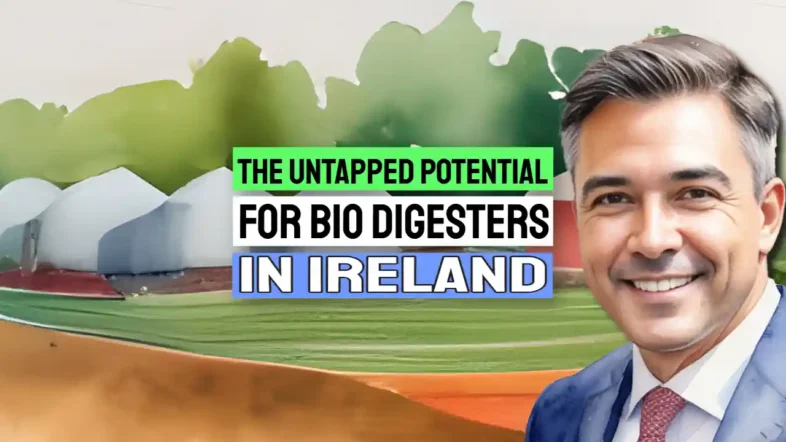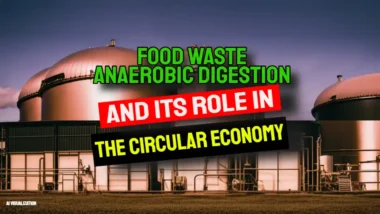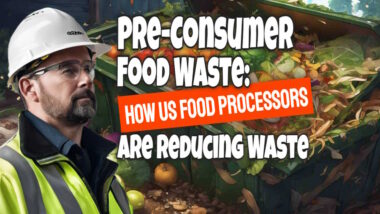It's time to sing the praises for utilising grass for biogas production in Irish agriculture. Yes. Bio digesters in Ireland have unrealized grass power potential to improve Irish agriculture.
Ireland's agricultural sector is heavily reliant on grass as a primary source of feed for livestock, such as beef, dairy, and sheep farming. Despite this dependence, there remains untapped potential in utilizing it further towards renewable energy production through anaerobic digestion processes that harness its power effectively while reducing greenhouse gas emissions simultaneously.
This blog post explores the benefits associated with using grass to produce biogas, which could prove beneficial not only environmentally but economically too!
The Importance of Grass in Irish Farming
Irish farming relies heavily on grass as its lifeblood, supporting key industries such as beef production, dairy, and sheep. However, this dependence comes with a cost – cows that consume it produce methane gas, which contributes significantly to global warming.
As the agricultural sector expands rapidly in Ireland (particularly through an increase in cow numbers) so too does our responsibility for meeting emissions targets set by Europe.
To address these challenges biogas harvesting from grass could provide solutions. By using innovative technology we can turn waste into energy while reducing greenhouse gases at the same time. This approach not only benefits Irish farmers but also helps protect future generations against climate change impacts.

The Power of Biogas
Anaerobic digestion is a process that converts organic materials such as grass, food waste and animal slurry into renewable energy resources. By utilizing anaerobic digestion plants methane emissions from cows can be transformed into biogas – a sustainable alternative to fossil fuels which reduces greenhouse gas emissions while providing a new source of power generation.
This innovative approach offers significant environmental benefits without compromising on efficiency or reliability making it an attractive option for those looking towards more eco friendly solutions in the future.
Micro Anaerobic Digestion
Mechanical engineer Kieran Coffey has demonstrated the potential of small-scale anaerobic digestion by designing and constructing his own micro-sized plant. This innovative system works similarly to how cows break down food in their stomachs – macerating waste materials before pumping them into a digester where bacteria convert it into biogas.
The resulting product is sufficient for meeting all cooking needs within households like those belonging to Kieran's family members who have benefited from this technology firsthand.
With such promising results being achieved through smaller-scale operations like these, there may be hope yet when it comes to tackling issues related to managing organic wastes effectively while also generating clean energy sources simultaneously!
Large-Scale Anaerobic Digestion – The Facts
Billy Costello, a pig farmer who has implemented anaerobic digestion on a larger scale uses both pig slurry and waste from the food industry such as outdated items found in supermarkets to produce biogas.
This gas is then collected and converted into electricity or heat which reduces their reliance on imported fossil fuels significantly. According to Billy himself government support through various policies would be crucial for promoting renewable gas production within Ireland at large scales.
Biogas for Farmers – The Benefits
Small scale beef farmers who are struggling to make ends meet may find relief in diversifying into biogas production.
By growing silage for use at nearby biogas plants these farmers can receive regular payments and become energy growers simultaneously. This alternative market offers an opportunity for reducing reliance on traditional dairy or cattle rearing which faces challenges with profitability.
Nonetheless, it is crucial that the biogas industry does not exacerbate land usage or increase fertilizer utilization rates without proper consideration of environmental impacts.
Environmental Impact of Bio Digesters in Ireland
The biogas industry has an important role to play in reducing greenhouse gas emissions and nutrient runoff. To achieve this goal, it is crucial that we adopt responsible environmental practices throughout the sector.
Precision injecting, coupled with using a trailing shoe for digestate application, can significantly reduce any negative impacts on our environment.
Moreover, utilizing digestate as a potent biofertilizer allows us to enhance grassland productivity while also minimizing waste disposal issues associated with raw slurry management.
By diverting raw slurry into anaerobic digesters instead of simply releasing them directly into the atmosphere or soil farmers can make significant strides towards achieving sustainable agriculture goals while simultaneously improving their bottom line by reducing costs related to fertilizers usage over time.
Biogas in Ireland – A Look Into the Future
Ireland is taking a significant step towards achieving its goal of becoming carbon neutral by 2050 with the announcement that Gas Networks Ireland will be injecting biomethane into their national gas grid.
This move paves way for renewable transport fuel and could potentially reduce emissions from trucks and buses which currently rely on diesel.
However, one major challenge lies in the lack of a payment system for injecting gas into grids within Ireland compared to other European countries that provide subsidies or tariffs promoting the production of green energy sources like biogas.
It remains crucial that this issue gets addressed promptly if we are serious about transitioning away from fossil fuels towards sustainability.
Rounding Off – Bio Digesters in Ireland
Ireland has the potential to significantly reduce greenhouse gas emissions and meet renewable energy targets by harnessing grass through anaerobic digestion. By diverting grass and organic waste into biogas production, farmers can generate supplementary income while contributing towards a more sustainable agricultural sector.
However, government support is necessary for success in this industry within Ireland. With proper policies implemented, Ireland could become a leader in producing renewable gases domestically rather than relying on imported fossil fuels.




